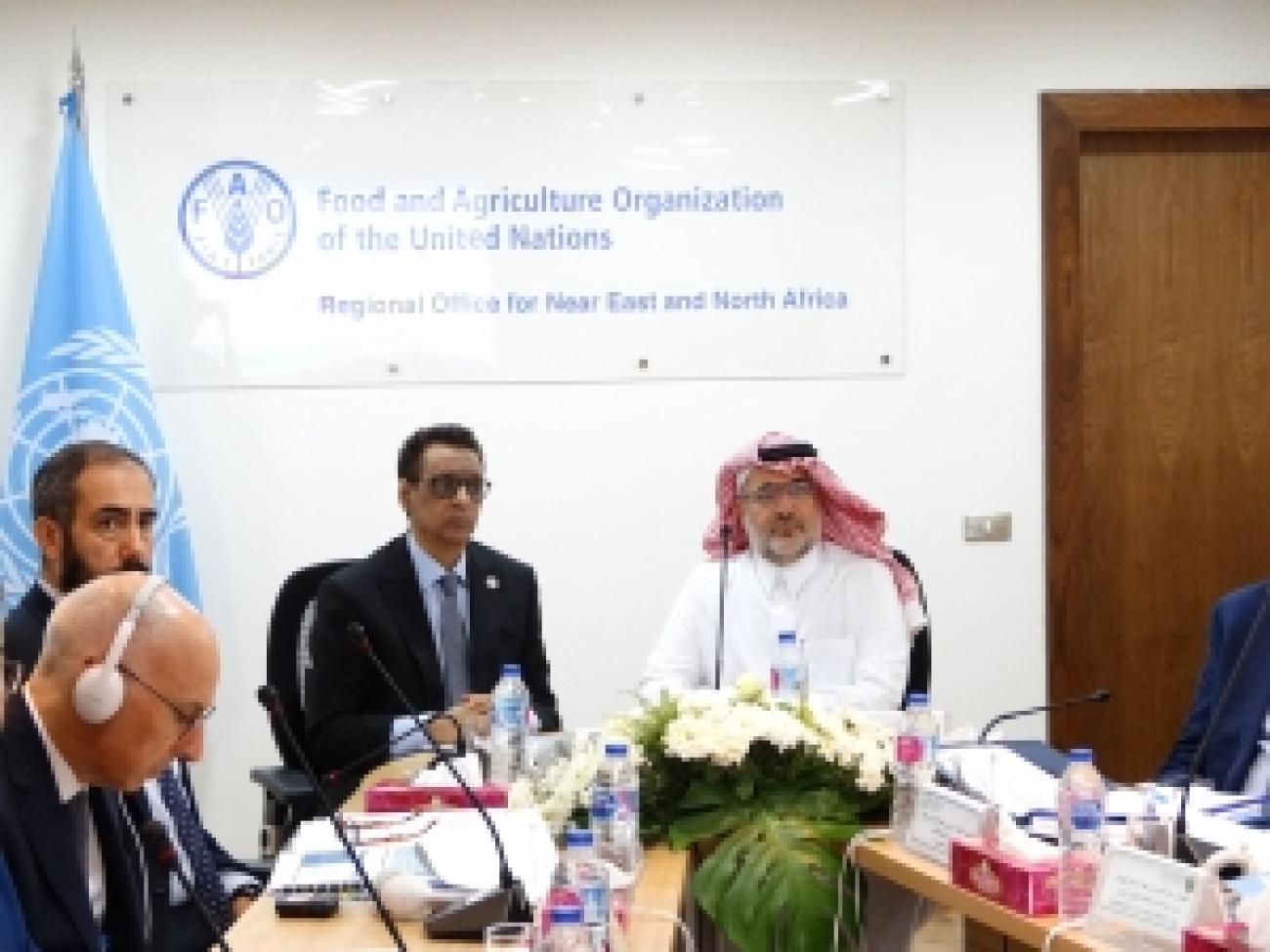FAO and Saudi Arabia Renew their Cooperation to a Sustainable Future of Food and Agriculture

Innovation in food systems and agriculture is vital to address challenges in the region.
Saudi Arabia agreed to support FAO's efforts in organizing an international forum aims at scaling up innovation in agriculture to accelerate the transformation needed to feeding a growing and increasingly urbanized population in the Near East and North Africa region.
The Saudi delegation made the announcement during a meeting with Abdessalam Ould Ahmed, FAO Assistant Director-General and Regional Representative for the Near East and North Africa.
"We hope the upcoming co-organized event on agricultural and food system innovation will assist region's countries advancing their agricultural and food systems innovation and identifying the gaps in order to promote innovation strategies and investment plans," declared Eng. Ahmed Saleh Al-Eyada, Deputy Minister for Agriculture, Saudi Ministry of Environment, Water and Agriculture.
"I strongly thank Saudi Arabic for its trust in FAO to organize such symposium which will contribute to and showcase the best global practices of innovation for a more sustainable agriculture and food systems," Ould Ahmed said at the meeting today the country's support for the UN agency.
"FAO is collaborating with UN agencies, public and private sector, researchers and civil societies and holding this upcoming event to promote for the use of innovation and technology in agri-food value chains as a force for change, not just in agriculture but other sectors as well," Ould Ahmed added.
A global forum for innovation
Innovation holds a key to making farming and the entire agri-food value chain more attractive, creating business and employment opportunities and helping the region to achieve food security, sustainable agriculture and the Sustainable Development Goals (SDGs).
The event, which to take place in Riyadh on March 2020 in continuum to the highly anticipated G20 Summit, is a direct and firm response to the enthusiastic encouragement among member countries in the region for FAO to play a strong catalytic and supporting role to empower farmers and youth through innovation and technology.
The forum will provide inspiration for innovation actors and decision-makers and, among other things, will celebrate inspiring success stories of innovators, acting as catalyst for boosting partnerships as well as public and private investments to foster and scale up agricultural and food systems innovation across the globe.
FAO and innovation
Innovation in agriculture cuts across all dimensions of the production cycle and along the entire value chain - from crop, forestry, fishery or livestock production to the management of inputs to market access. FAO assists its member countries in unlocking the potential of innovation to drive socio-economic growth, ensure food and nutrition security, alleviate poverty and improve resilience to climate change.
FAO uses Drones, satellite imaging, remote sensors and mobile applications to prevent transboundary pests and diseases and collect real-time data to assess the risk of natural disasters, and the extent of damages once they occur.
FAO recognizes the successful innovations that farmers have implemented over centuries and supports them to apply innovative practices such as Integrated Aquaculture Agriculture for reducing water use in the Near East and North Africa region Ould Ahmed said. Through FAO-organized farmer-to-farmer study tours, Algerian, Egyptian and Omani farmers visited 15 integrated agri-aquaculture farms, learning new tips and techniques from each other. "This particular triad of countries (Algeria, Egypt and Oman) are a good example of successful South-South Cooperation, as each has a different level of sophistication and experience with these systems," Ould Ahmed added.
FAO's cooperation with Saudi Arabia
FAO has closely collaborated with Saudi Arabia for over 70 years. The organization has provided technical and advisory support to the country at strategic, institutional and technical levels.
In 2017-2018, support included assistance for the implementation of the Ministry's strategic initiatives developed within the context of the National Transformation Plan (NTP) 2020 and the Saudi Vision 2030.
Areas of cooperation include strengthening sustainable food security, sustainable utilization of agricultural natural resources, reinforcing marine fisheries and aquaculture production and consumption, boosting capacity in animal disease prevention and control, improving plant production and protection, consolidating linkages of small famers and agricultural producers to markets, and consolidating a results-based system for monitoring and reporting results.




